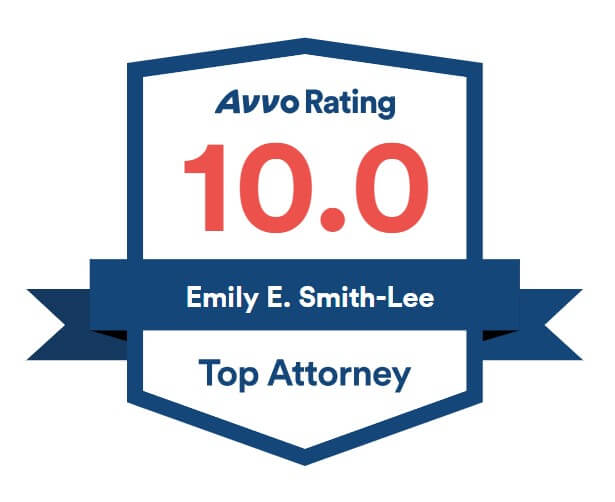Employment Law Advice for Employees in Massachusetts
Where Should You Turn For Employment Law Advice?When workplace issues arise, employees often seek answers to their questions and concerns. Whether it's about wrongful termination, intolerable working conditions, wage disputes, independent contractor status, sexual harassment, non-compete agreements, or other employment-related matters, knowing your rights is essential.
Navigating the Internet for AnswersThe internet is a vast resource, and while it provides information, not all of it is accurate or applicable to your situation, especially if you're in Massachusetts. Employment laws vary from state to state, and it's crucial to have access to reliable advice tailored to your specific circumstances. If you're a Massachusetts employee seeking information about your employment rights, you're in the right place.
Common Employment Issues in MassachusettsWe've compiled a summary below of some of the most common employment issues that Massachusetts employees face. These are the issues people come to us with daily. Further information on each topic is available on the linked pages in each section.
Empower yourself with knowledge of your employment rights in Massachusetts. If you believe you've experienced wrongful termination, intolerable working conditions, wage disputes, misclassification as an independent contractor, sexual harassment, or non-compete agreement issues, don't hesitate to seek legal advice. Your rights matter, and understanding them is the first step to protecting your workplace well-being. If you don't find answers to your questions here, you can explore our Legal FAQs for a wider range of topics. Wrongful Termination in MassachusettsMassachusetts follows the "at-will employment" doctrine, which means employers can terminate employees for various reasons. However, there are exceptions to this rule, and not all terminations are legal. Wrongful termination can occur if you are fired for discriminatory reasons, as retaliation for protected activities, or due to a breach of an employment contract.
Constructive Discharge: Should You Quit Your Job?Deciding whether to resign from a job due to intolerable working conditions is a challenging decision. Resigning voluntarily may impact your eligibility for unemployment benefits and your ability to pursue legal action against your employer. If the situation is severe and tied to illegal activities like discrimination or harassment, you might have a claim for constructive discharge.
|
We're Here to Help.OR
|
Questions About Your Employment Law Rights?
Our Solutions Roadmap is a quick and easy way to share the details of what you are facing and receive preliminary feedback from a member of our team. Use the button below to get started- it is 100% confidential and 100% free.
Wage and Hour Disputes in Massachusetts
Massachusetts law protects employees' rights to timely and accurate payment of wages and commissions. Employers often make errors in this area, leading to underpayment or non-payment. Understand your rights, including minimum wage, overtime, and employer obligations when it comes to wage issues.
Independent Contractor Status in Massachusetts
Many workers in Massachusetts are misclassified as independent contractors when they should be considered employees. The state's Independent Contractor Law sets specific criteria for true independent contractor status, and misclassification can lead to legal consequences.
Sexual Harassment at Work: Your Rights
Sexual harassment is unlawful under both federal and state law. It includes not only explicit advances but also a hostile work environment. Learn your rights and protections against workplace sexual harassment.
Non-Compete Agreements in Massachusetts
Whether you're considering signing a new non-compete agreement or navigating one from a previous job, understanding your rights under Massachusetts non-compete law is crucial. Recent changes in the law affect the enforceability of such agreements.
Your Paid Family Medical Leave Rights
Massachusetts law now requires most employers, even small ones, to provide job-protected leave for family or medical reasons. This includes not only your right to take leave, but your right to return to work without facing retaliation. Learn more about the Massachusetts Paid Family Medical Leave Act.
Meet Our Employment Lawyers

Emily Smith-Lee is the owner and founder of slnlaw. She is a 1996 graduate of Boston College Law School. She was previously a partner at the Boston office of a large international firm, where she worked for thirteen years before starting the firm that became slnlaw in 2009. She has been recognized as Massachusetts Superlawyer each year since 2013, and in 2018 earned recognition as one of Massachusetts Lawyers Weekly's Lawyers of the Year. She has written a book on employment law: Rules of the Road, What You Need to Know About Employment Laws in Massachusetts, and helped thousands of clients on both the employee and employer side with severance and non compete review and negotiation, wage and hour, discrimination and retaliation disputes, and advice about employment law generally.

Rebecca Rogers: Rebecca is a 2006 graduate of Boston College Law School, and has worked with slnlaw since 2013. She previously worked as an intellectual property litigation attorney for Fish & Richardson in Boston, Massachusetts, and clerked for the Massachusetts Supreme Judicial Court. Rebecca has helped clients with wage and hour disputes, employment discrimination and retaliation claims, review and negotiation of severance and non compete agreements, and advice to both employees and employers about navigating complex employment situations.

Jenna Ordway: Jenna is a 2013 graduate of Quinnipiac Law School, and also earned an LLM in Taxation from Boston University in 2015. She has been affiliated with slnlaw since 2011, first as a law clerk and then as an attorney. Jenna has been recognized since 2019 as a "Rising Star" by Massachusetts Superlawyers. Jenna has helped clients with review and negotiation of severance and non compete agreements, wage and hour disputes, employment and discrimination claims, and advice to small business owners about employment law and other business matters.

Elijah Bresley: Eli is a 2014 graduate of Seton Hall Law school, and has worked with slnlaw since 2020. He previously worked for a boutique employment law firm outside of Boston, and then for the Labor and Employment department of a large Boston firm. He also spent a year clerking for the judges of the Superior Court in Hartford, Connecticut. Eli has helped clients on the employee and employer side with all varieties of employment law issues, including employment discrimination, retaliation, and wage and hour issues, litigation in MCAD and state and federal courts, and advising employers about employment policies and practices.

Sharleen Tinnin: Sharleen is a 2010 graduate of Northeastern University School of Law, and has been with slnlaw since 2023. Prior to joining slnlaw, she worked with King, Tilden, McEttrick & Brink, P.C. on complex civil litigation matters. She previously worked for the United States Department of Justice, and received an "Excellence in Justice" award in 2017. Sharleen has helped clients with wage and hour, discrimination and retaliation disputes, review and negotiation of severance agreements, and litigation in MCAD and state and federal courts on employment related issues.
How We Can Help
If you have concerns or questions about your employment situation in Massachusetts, it's essential to consult with an experienced employment attorney. Employment law can be complex, and professional guidance ensures you fully understand your rights and options. You can use the button below to schedule a call back from a member of our team, or give us a call at 781-784-2322.





